To Allison Russell, modern music means creating community and improving the world
Allison Russell is "dreaming the biggest dreams" of her career, she tells The Tennessean ahead of a brief homestand before a global tour in 2024.
The Nashville-based artist and social activist, nominated for four 2024 Grammy Awards, will play the Basement East Jan. 11 and 12.
The two-night stand will give her chosen family, the "Rainbow Coalition" artist collective, and growing global, progressive-minded fanbase the chance to celebrate her two-plus decades of critically acclaimed artistry.
Then during the year, she'll play not just her own dates but a worldwide slate of gigs alongside artists including her frequent collaborator Brandi Carlile, and creative inspirations Tyler Childers, Hozier and Sarah MacLachlan.
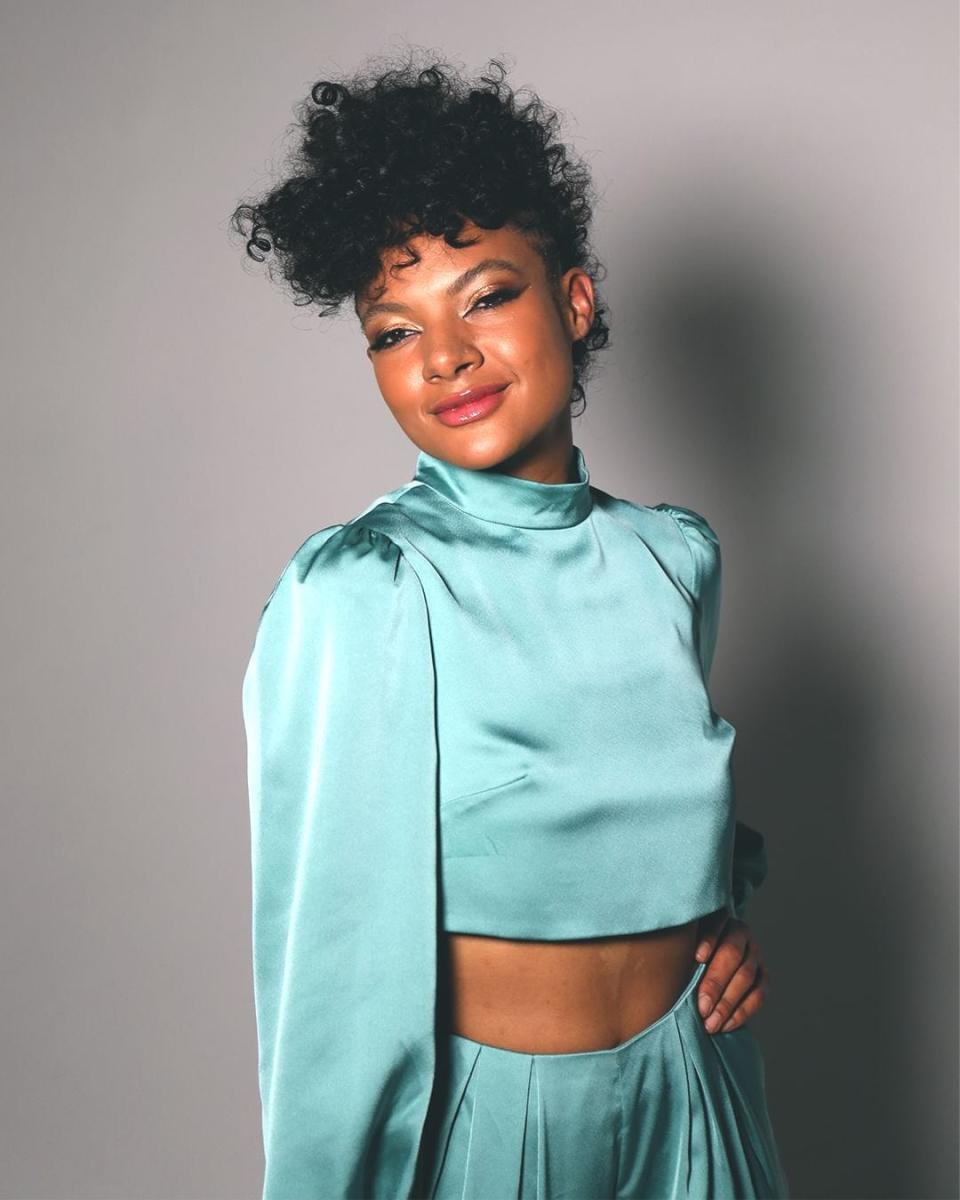
In the past five years, the release of albums "Outside Child" and "The Returner" — her first two solo albums after a career as a lead vocalist and collaborator with many acts — has yielded Russell the rare chance to chart her course to stardom through frankness in her singer-songwriter craft.
2020's "Outside Child" was the retelling of the epic her life has become. Russell was confounded and marginalized by her Afro-Euro-Canadian roots, and then survived childhood abuse and undiagnosed schizophrenia; the eventual peaceful embrace of multiple identities as a step-daughter healed by the transformative power of love through the discovery and acceptance of her queer identity led to the album's most potent moments, namely the plaintive ballad "Nightflyer."
"Now I feel everything good, Lord; what the hell could they bring to stop me, Lord? / Nothing from the earth, nothing from the sea, not a God almighty thing," she sings.
"The Returner" found Russell in 2023 grappling with reclaiming her autonomy, consciousness and freedom from the grasp of a survivor's mentality through dance rhythms and defiant joy.
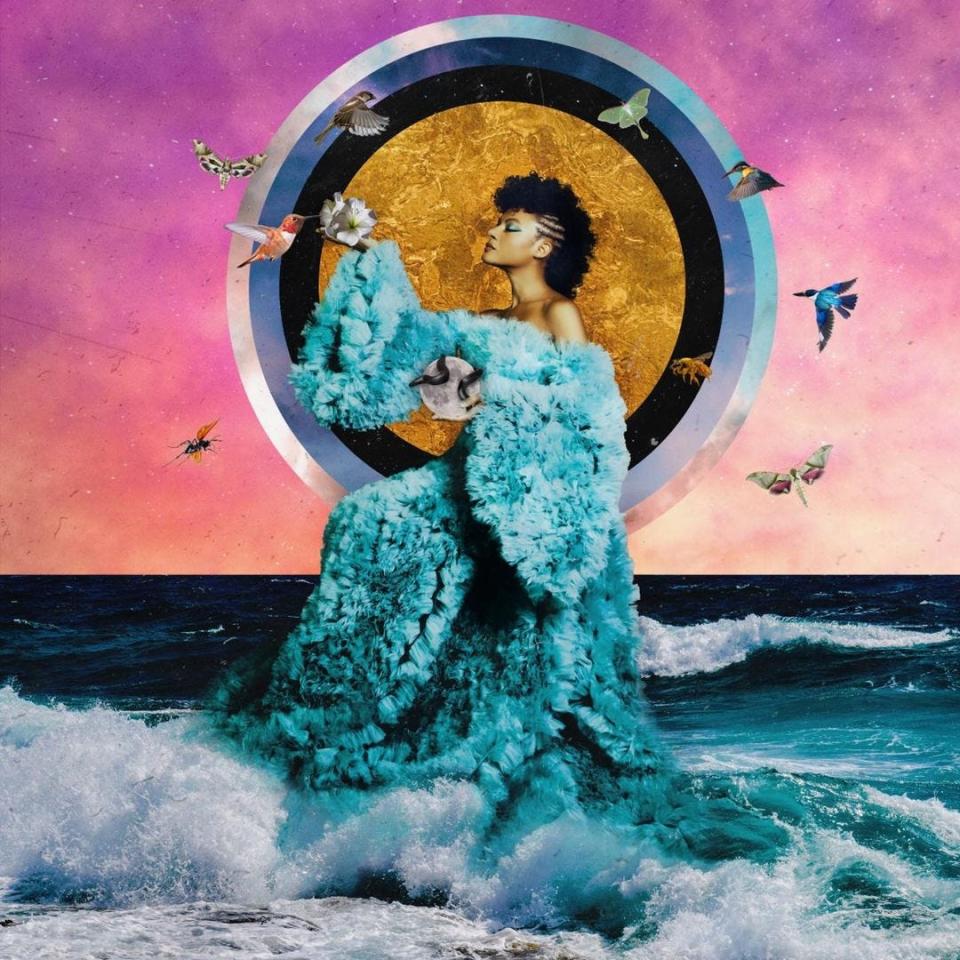
From "The Returner," the banjo and string-driven folk groove "Eve Was Black" was nominated for a Grammy for best American roots performance.
In the song, Russell sings, "Why do you try to touch my hair? Do you hope to find a blessing there? Why do you try to keep me down? Do you hope to sow this barren ground?"
About her Grammy nominations, Russell says it's an "amazing, beautiful, joyful and surreal gift" that the Recording Academy is rewarding her as for making music inspired by soulful empowerment as well as "creating art that redefines music's modern value" as "communal inspiration."
'A thrilling season'
In a half-hour conversation, Russell names a collaborative community of 15 different artists either benefiting from her amplifying their talents or as someone she admires and is deeply indebted to.
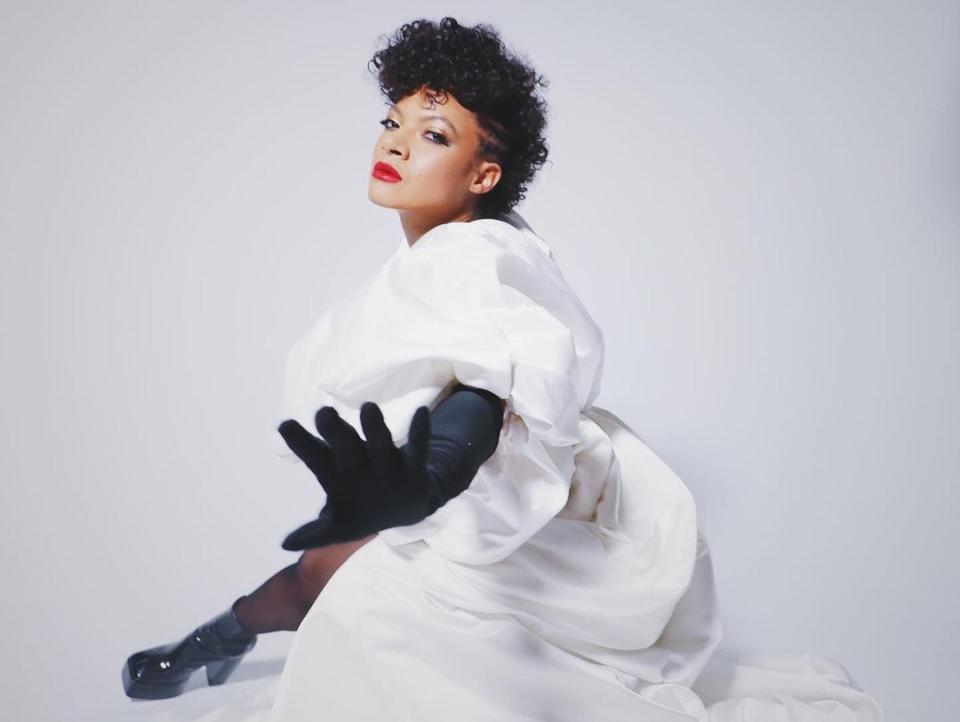
An artist might feel slighted by a touring band members moving on to solo artistic acclaim.
However, Russell gushes when discussing how her guitarist, Joy Clark, is releasing an album with Ani DiFranco's Righteous Babe Records or how her Filipino-American string arranger, Larissa Maestro, was the first woman of color named the Americana Music Association's musician of the year in 2022 and now writes scores for documentaries and films while also touring with Hozier.
Of course, 2023 saw Russell's cellist and violinist, Chauntee and Monique Ross (professionally known as SistaStrings), named the second and third women of color to claim that honor. Russell adds that they are now working in Brandi Carlile's touring ensemble and with the Grammy-winning rock star as a producer on their album.
"We're in a thrilling season where impactful, influential and treasured artistry is being rewarded," Russell says.
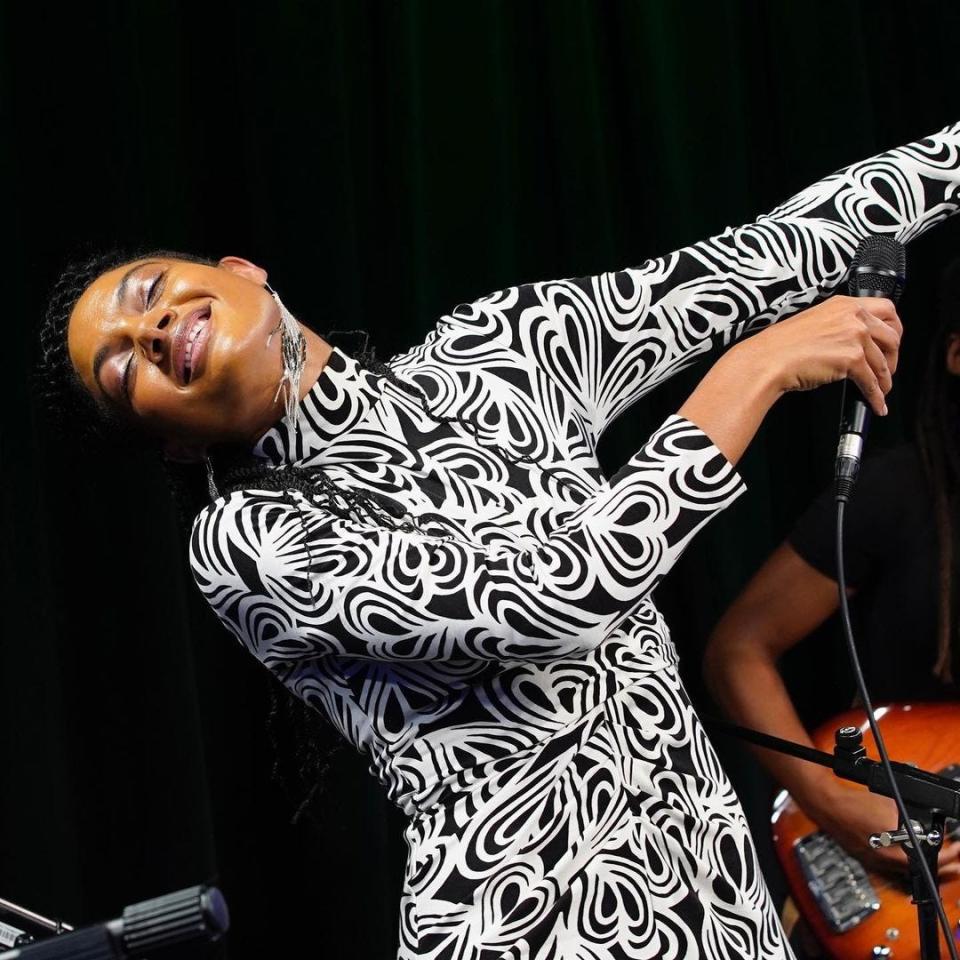
What to expect at Russell's 2024 concerts
Her 2024 shows will "engage in education and mandate inclusivity" in social environments intentionally fostered to refuse to be "paralyzed by fear."
"Fear, harm and violence reduction in places where people feel supported, can thrive and are visible in their humanity allow for an energy to resonate that draws us together," she says.
"This is vital, cross-pollinated music that extends past genre," Russell continues. "These are sounds founded in Canada to the Caribbean, immigrating and migrating between the continental masses of South, Central and North America from and to the African, European and Indigenous diasporas. And now we're engaging with removing them from being whitewashed by the bucolic tropes of Appalachia and the American South."
To wit, at her shows, she's created an "altar of inspiration" adorned with photos of Tracy Chapman, Joni Mitchell, Sinead O'Connor, Prince and Mavis Staples meant to conjure the Ancestor's Tree in New Orleans' Congo Square, where formerly enslaved people light candles and make offerings to spirits and ancestors.
"Learning resilience and transcendence from the pain and trauma associated with displacement and enslavement is important," Russell says.
Daring to care about the future
Russell's not content to stop there, either.
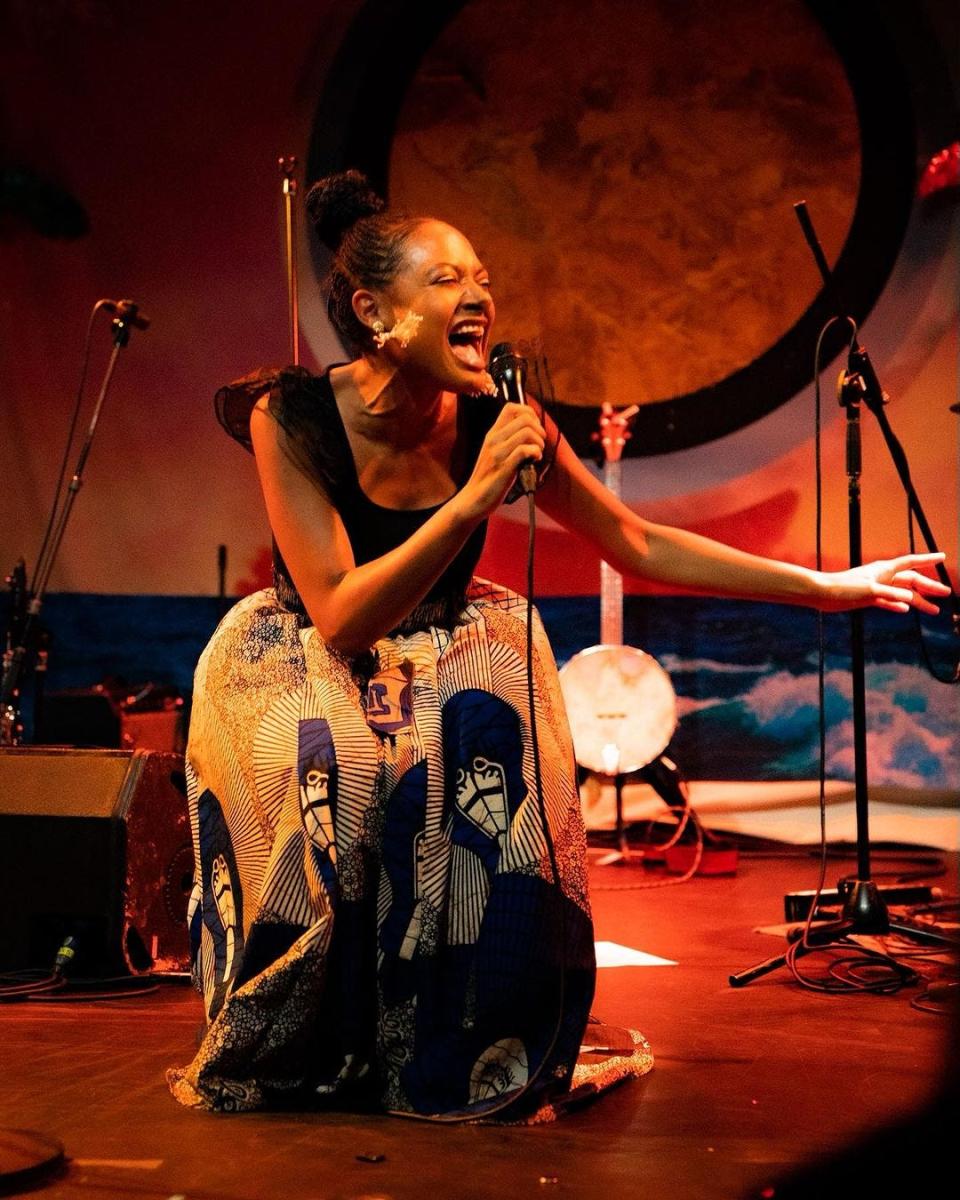
For the past two years, she's been compiling her memoir, which her Flatiron Books editor Bryn Clark called an "evocative story [that] lit [her] heart on fire," that will serve a "greater mission to help others and bring healing to this world."
Russell speaks of achievements like curating a set focused on Black women, queer women and related allies to close 2021's Newport Folk Festival or joining Brandy Clark as a 2024 artist-in-residence at New York University's Steinhardt School of Culture, Education, and Human Development as moments that will spawn festival organizers, poet laureates and in general, "young people as captains of their future."
"To change this world for the better, we must engage in sacred creative communion and dare to care," she says.
This article originally appeared on Nashville Tennessean: Allison Russell's Nashville homestand to kick off a big 2024
